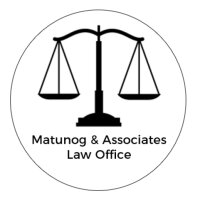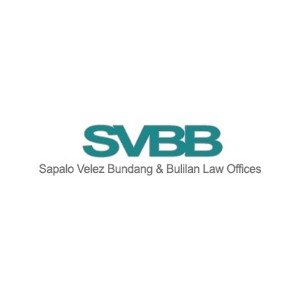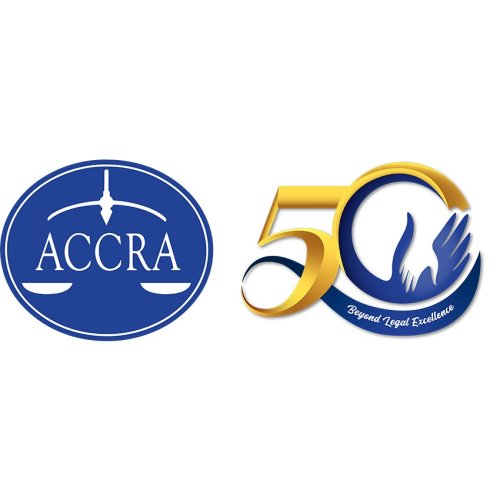Best Antitrust Litigation Lawyers in Davao City
Share your needs with us, get contacted by law firms.
Free. Takes 2 min.
List of the best lawyers in Davao City, Philippines
About Antitrust Litigation Law in Davao City, Philippines
Antitrust litigation in Davao City, Philippines refers to legal actions brought to enforce or challenge violations of competition laws. These laws are designed to protect the market from unfair business practices, such as price fixing, abuse of dominant position, bid rigging, or forming cartels. Davao City, as one of the country’s key commercial centers, sees a range of business activities that fall under the scrutiny of the Philippine Competition Act and related regulations. Legal disputes may arise when individuals, companies, or organizations believe that unfair competition has occurred, potentially harming consumers, businesses, or the market as a whole.
Why You May Need a Lawyer
Antitrust litigation is a complex area involving both business and competition law. Individuals and companies in Davao City may need a lawyer for several reasons:
- Suspecting or experiencing unfair competition, cartel activity, or monopolistic practices by competitors or suppliers.
- Facing investigations by the Philippine Competition Commission or local regulatory authorities for alleged violations of antitrust laws.
- Wanting to pursue or defend a claim for damages arising from anticompetitive conduct.
- Needing legal advice on compliance with the Philippine Competition Act when entering into partnerships, mergers, or acquisitions.
- Responding to cease-and-desist orders related to business practices.
- Requiring representation in court or during administrative hearings involving competition law issues.
Local Laws Overview
Antitrust and competition law in Davao City is primarily governed by Republic Act No. 10667 or the Philippine Competition Act. Key features include:
- Prohibition of anticompetitive agreements: Agreements that restrict, prevent, or lessen competition, such as price fixing, bid rigging, or market sharing, are illegal.
- Abuse of dominant position: Companies holding dominant market positions are restricted from using their power to bully competitors or manipulate the market unfairly.
- Merger and acquisition review: Large mergers, consolidations, or acquisitions must be reviewed by the Philippine Competition Commission to prevent the creation of monopolies.
- Leniency and immunity programs: Companies or individuals who voluntarily disclose participation in cartels or anticompetitive conduct may receive reduced penalties.
Frequently Asked Questions
What is antitrust litigation?
Antitrust litigation involves legal action to enforce competition laws or defend against accusations of anticompetitive conduct, such as price fixing, monopolistic behavior, or market manipulation.
Who enforces antitrust laws in Davao City?
The Philippine Competition Commission is the main agency responsible for enforcing antitrust laws, often working with local authorities and courts in Davao City for cases within the region.
What activities are considered anticompetitive or illegal?
Activities such as price fixing, bid rigging, market sharing, limiting production to raise prices, and abusing a dominant market position are considered anticompetitive and are illegal under the Philippine Competition Act.
Can individuals file complaints about antitrust violations?
Yes, individuals, companies, and consumer groups can file complaints with the Philippine Competition Commission if they suspect violations of competition law.
What penalties can result from an antitrust violation?
Penalties can include substantial fines, orders to stop certain business activities, liability for damages to affected parties, and in some cases, criminal charges.
Is there a time limit for filing an antitrust complaint?
Generally, complaints should be filed within five years from the time the violation was discovered; however, prompt action is always recommended.
Can a business defend itself if accused of antitrust violations?
Yes, businesses have the right to respond to accusations, present evidence, and be represented by legal counsel during investigations or court proceedings.
Are mergers and acquisitions automatically illegal under antitrust law?
No, but certain mergers or acquisitions that substantially lessen competition may be prohibited or required to undergo review and approval by the Philippine Competition Commission.
What is the leniency program in antitrust law?
Under the leniency program, companies or individuals involved in cartels or other violations may receive reduced penalties if they voluntarily disclose their involvement and cooperate with authorities.
How can a lawyer help in an antitrust case?
A lawyer can assess the situation, advise on legal strategies, represent clients in investigations or court, negotiate settlements, and help ensure compliance with all applicable laws.
Additional Resources
If you need more information or assistance regarding antitrust litigation in Davao City, consider reaching out to the following:
- Philippine Competition Commission (PCC): The national authority on competition law enforcement and guidance.
- Integrated Bar of the Philippines - Davao City Chapter: Can help you find qualified local lawyers with expertise in antitrust litigation.
- Davao City Legal Office: Provides legal information and initial guidance for residents.
- Department of Trade and Industry (DTI) - Davao Region: Offers resources on fair trade practices and may assist with related consumer complaints.
Next Steps
If you believe you are affected by or facing allegations of anticompetitive behavior in Davao City, it is important to act promptly:
- Gather relevant documents, contracts, communications, or evidence related to your concern.
- List the specific incidents, companies, or individuals involved.
- Consult with a qualified antitrust lawyer who is familiar with Philippine competition law and local procedures in Davao City.
- Discuss your observations and any potential risks or liabilities so your lawyer can assess your position and recommend the best course of action.
- Stay informed and follow the guidance of your legal counsel throughout the process, especially when responding to regulatory inquiries or participating in litigation.
Lawzana helps you find the best lawyers and law firms in Davao City through a curated and pre-screened list of qualified legal professionals. Our platform offers rankings and detailed profiles of attorneys and law firms, allowing you to compare based on practice areas, including Antitrust Litigation, experience, and client feedback.
Each profile includes a description of the firm's areas of practice, client reviews, team members and partners, year of establishment, spoken languages, office locations, contact information, social media presence, and any published articles or resources. Most firms on our platform speak English and are experienced in both local and international legal matters.
Get a quote from top-rated law firms in Davao City, Philippines — quickly, securely, and without unnecessary hassle.
Disclaimer:
The information provided on this page is for general informational purposes only and does not constitute legal advice. While we strive to ensure the accuracy and relevance of the content, legal information may change over time, and interpretations of the law can vary. You should always consult with a qualified legal professional for advice specific to your situation.
We disclaim all liability for actions taken or not taken based on the content of this page. If you believe any information is incorrect or outdated, please contact us, and we will review and update it where appropriate.












